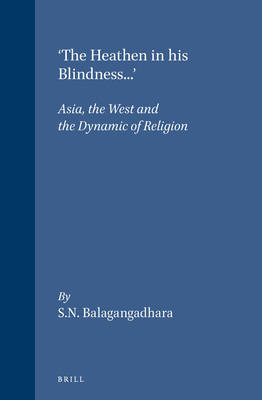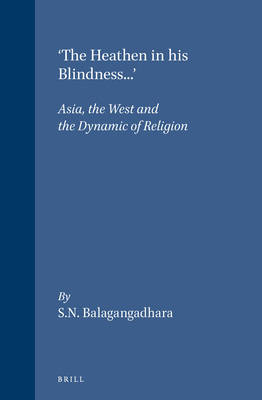
- Afhalen na 1 uur in een winkel met voorraad
- Gratis thuislevering in België vanaf € 30
- Ruim aanbod met 7 miljoen producten
- Afhalen na 1 uur in een winkel met voorraad
- Gratis thuislevering in België vanaf € 30
- Ruim aanbod met 7 miljoen producten
Zoeken
€ 306,56
+ 613 punten
Omschrijving
Today, most intellectuals agree that (a) Christianity has profoundly influenced western culture; (b) members from different cultures experience many aspects of the world differently; (c) the empirical and theoretical study of both culture and religion emerged within the West.
The present study argues that these truisms have implications for the conceptualization of religion and culture. More specifically, the thesis is that non-western cultures and religions differ from the descriptions prevalent in the West, and it is also explained why this has been the case. The author proposes novel analyses of religion, the Roman 'religio', the construction of 'religions' in India, and the nature of cultural differences. Religion is important to the West because the constitution and the identity of western culture is tied to the dynamic of Christianity as a religion.
The present study argues that these truisms have implications for the conceptualization of religion and culture. More specifically, the thesis is that non-western cultures and religions differ from the descriptions prevalent in the West, and it is also explained why this has been the case. The author proposes novel analyses of religion, the Roman 'religio', the construction of 'religions' in India, and the nature of cultural differences. Religion is important to the West because the constitution and the identity of western culture is tied to the dynamic of Christianity as a religion.
Specificaties
Betrokkenen
- Auteur(s):
- Uitgeverij:
Inhoud
- Aantal bladzijden:
- 580
- Taal:
- Engels
- Reeks:
- Reeksnummer:
- nr. 64
Eigenschappen
- Productcode (EAN):
- 9789004099432
- Verschijningsdatum:
- 1/11/1993
- Uitvoering:
- Hardcover
- Formaat:
- Genaaid
- Afmetingen:
- 157 mm x 236 mm
- Gewicht:
- 952 g

Alleen bij Standaard Boekhandel
+ 613 punten op je klantenkaart van Standaard Boekhandel
Beoordelingen
We publiceren alleen reviews die voldoen aan de voorwaarden voor reviews. Bekijk onze voorwaarden voor reviews.







